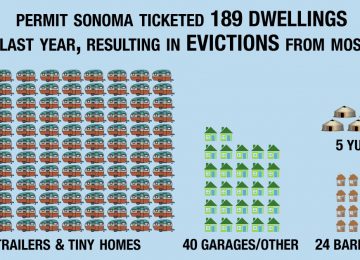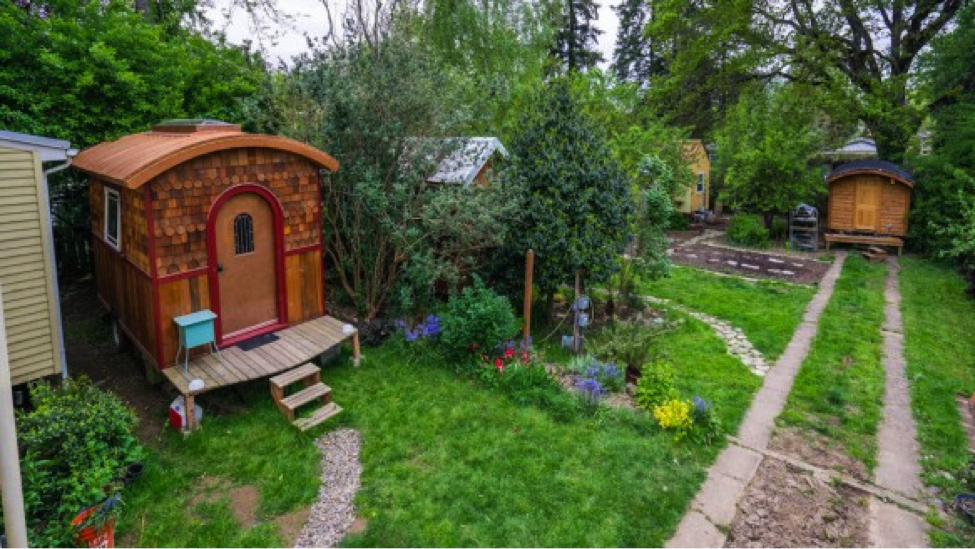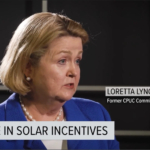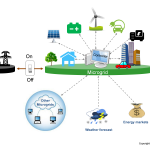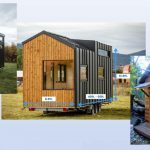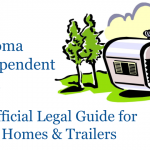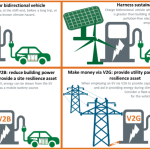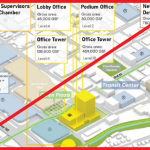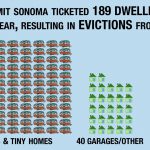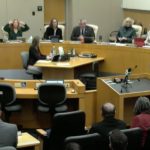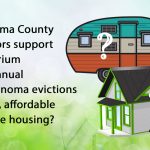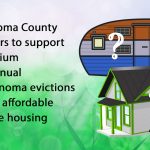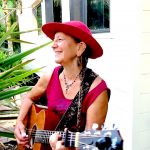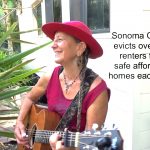It used to be such a nice place to live—a working-class town in the mountains of N.C., the provisions mecca for those of us in the 1970s back-to-the-land movement. Eventually, I moved off the land and made my home there. I could afford to do that—for a while.
As ‘60s and ‘70s idealism turned into ‘80s and ‘90s consumerism, outsiders began buying up land for large homes, turning once-agricultural land fallow. Modern, sprawling resorts and spas weren’t far behind. Speculation soared.
Sonoma County reminds me of those times. Today, I feel a vicarious thrill listening to young people who want to work the land, providing local, organic food for county residents. And I have joined them and other activists in efforts to keep out pesticides and GMOs and corporate event centers on rich land meant to provide sustenance.
We can do this. It’s not too late to make room for these eager farmers and moderate-income families. It’s not too late to think outside the gated community. Because if we don’t, we face the same fate as that North Carolina town and its environs.
Back then, our sense of community diminished with every new 4,000-square-foot home. It grew harder and harder to build community with residents who were gone half the time or barricaded behind walls. Gradually, we began to see school bonds fail and libraries close on Sundays, then Mondays, then weekday mornings. Local eateries were replaced by upscale restaurants, the kind that out-of-town newspapers loved to review but few of us could support. And downtowns throughout the region no longer felt like home when shops catered only to those who could afford their increasingly useless merchandise.
Along the way, local politics changed—primarily reflecting the views of these newcomers and those who served them. Money spoke louder than we did.
To be fair, these changes did bring some amenities. A new bakery of healthy, old-world breads was a welcomed addition. Art galleries were lovely to walk through, even as a window shopper. And restored buildings looked better than boarded-up storefronts.
The problem wasn’t that THEY came, but rather that WE were essentially evicted. No provisions were made for the people who served the community—teachers, librarians, retail workers, office and farm workers—to live nearby. We were caught in the tired, old we/they conundrum, when we could have coexisted.
Sonoma County can have a different outcome. One group is actively seeking farm communities that allow field hands to live on the land they work. Still others are working tirelessly for the homeless and poor. A grassroots independent effort that I am part of called the Sonoma County Attainable Housing Coalition has a new proposal to allow the creation of 25,000 moderate-income houses at zero cost to taxpayers over the next 15 years.
This solution has been called an out-of-the-box idea. Good! That’s exactly what we need to solve our housing crisis. The small tradeoff of 1% of agricultural land and 5% of community-separator land would empower small landowners and individual homeowners to use the free market to address the county’s housing crisis. Now.
For anyone concerned about developer loopholes, this solution has built strong safeguards to ensure that for-profit developers will never be able to take advantage of these zoning adjustments for housing that is not attainably priced. And the best news is that these small homes would be attainably priced forever (and the land protected in perpetuity), which means generations of our citizens will enjoy the security of knowing they can afford to live in Sonoma County. To read more about this solution in the Sonoma Independent, click here. (A petition to support this petition can be found on the upper right side of this page in the What You Can Do toolbar).
There isn’t one answer. Lots of creative ideas need to be entertained with an open mind—from homeless tiny villages and new zoning for moderate-income housing to lower permit fees for “granny cottages” and on-the-farm dwellings. If we don’t embrace fresh solutions now, money will become the change agent, altering our political climate and our natural landscape. When that happens, none of us will recognize the county we love.



